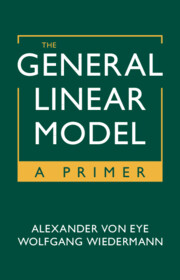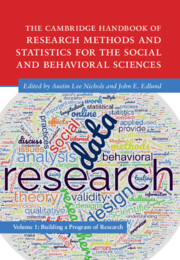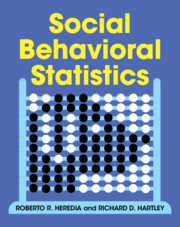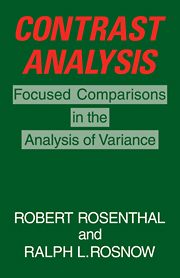Direction Dependence Analysis
While regression analysis is widely understood, it falls short in determining the causal direction of relationships in observational data. In this groundbreaking volume, Wiedermann and von Eye introduce Direction Dependence Analysis (DDA), a novel method that leverages variable information often overlooked by traditional techniques, such as higher-order moments like skewness and kurtosis. DDA reveals the asymmetry properties of regression and correlation, enabling researchers to evaluate competing causal hypotheses, assess the roles of variables in causal flows, and develop statistical methods for testing causal direction. This book provides a comprehensive formal description of DDA, illustrated with both artificial and real-world data examples. Additionally, readers will find free software implementations of DDA, making this an essential resource for researchers seeking to enhance their understanding of causal relationships in data analysis.
- Direction Dependence Analysis offers a robust statistical framework for testing causation hypotheses in variable relationships, empowering researchers to make informed conclusions about cause-and-effect dynamics
- This book presents a clear, comprehensive, and up-to-date introduction to Direction Dependence Analysis, providing researchers with essential theoretical insights and practical applications
- With a step-by-step guide and straightforward decision trees, the book simplifies the application of Direction Dependence Analysis, enabling researchers to conduct causal model selection without prior knowledge of the underlying causal structure that generated the data
- Accompanied by free R software, researchers can easily apply Direction Dependence Analysis to their own datasets, facilitating hands-on exploration of causal relationships
- The book explains key statistical principles relevant to causal machine learning, serving as an accessible introduction to the concepts underlying
Reviews & endorsements
‘Will we ever find out which of the chicken or the egg came first? The answer may lie beyond the Gaussian world. This is the fascinating premise of this unique book, which distills 25 years of intensive research into the groundbreaking field of directional dependence analysis.’ Yadolah Dodge, Professor Emeritus, University of Neuchâtel, and Valentin Rousson, Associate Professor, University of Lausanne
‘Wiedermann and von Eye provide a singularly erudite, integrative, comprehensive, and accessible roadmap for using direction dependence analysis to illuminate new and greatly needed methodological advances for establishing causality in real-word data. Across psychological science and other disciplines, researchers will find that this book presents powerful and creative means to rigorously identify causal relations in both basic and applied research.’ Richard M. Lerner, Bergstrom Chair in Applied Developmental Science and Director, Institute for Applied Research in Youth Development, Tufts University
‘Wiedermann and von Eye’s new book describes a refreshingly new approach to causal inference based on directional dependence. The new method provides information other than theory and prior empirical work by which to assess the causal dependence between variables. It is the first comprehensive book on this new method and provides a well-organized and clearly written account of this unique method, with plenty of examples.’ David P. MacKinnon, Foundation and Regents Professor, Department of Psychology, Arizona State University
‘Correlation is not causality! Does X cause Y, or Y cause X? Because correlations are symmetric for X and Y, we can’t know… Until now! I first encountered Direction Dependence Analysis (DDA) in a paper by this book’s authors. DDA is a brilliant idea: Use higher order moments to inform directionality. My thinking about correlations immediately became more nuanced and exciting. Read this book, and yours will too.’ Joe Rodgers, Professor Emeritus of Psychology and Human Development, Vanderbilt University
Product details
July 2025Paperback
9781009381390
406 pages
229 × 152 mm
Not yet published - available from July 2025
Table of Contents
- 1. Introduction
- 2. The linear regression model
- 3. Asymmetry properties of distributions of observed variables
- 4. Asymmetry properties of error distributions
- 5. Independence properties of causes and errors
- 6. Direction of dependence under latent confounding
- 7. The integrated framework of Direction Dependence Analysis
- 8. Stability and sensitivity analyses
- 9. Extensions and applications
- 10. Statistical software
- 11. Concluding remarks.






